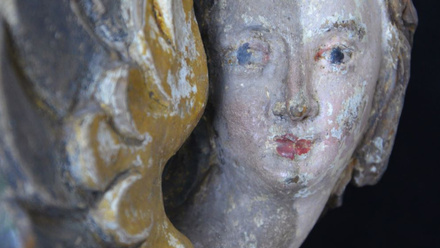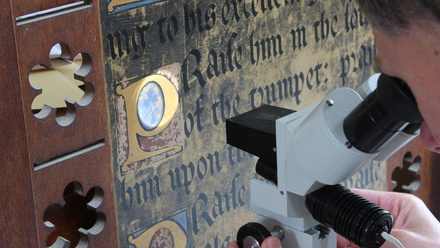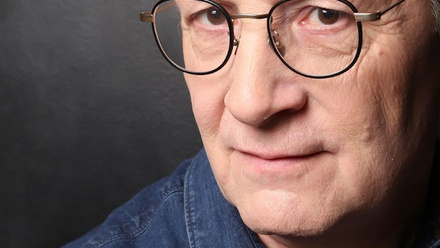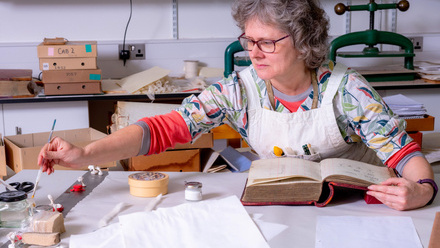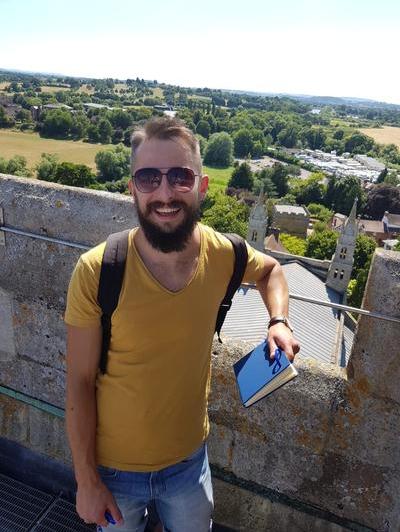
The prospect of becoming an Icon trustee is very tempting. It certainly has been for me, when three years ago, following a reassuring conversation with Icon’s Chief Executive, Sara Crofts, I decided to submit my nomination to join the Board.
Why become a trustee?
Why is this role so appealing? After all, you become a ‘company director’ legally responsible, together with other trustees, for the management of Icon’s business. This includes shaping Icon’s vision and mission, as well as approving and monitoring its annual business plan.
Although the day-to-day running of the organisation is delegated to the Chief Executive, supported by the small staff team, it is formally the responsibility of trustees to make strategic and operational decisions. Essentially, they are accountable for ensuring that Icon, as a charity and a membership organisation, meets its statutory obligations.
Being an Icon trustee is something to be very proud of. It gives you an insight into how Icon works and a chance to contribute your ideas to the Board and the Icon Team.
For a conservation professional this is brilliant CPD and a great way of networking with many dedicated members of the profession and others, who put themselves forward to help run Icon, just like you.
What I have learned
Being an Icon trustee is extremely rewarding, but it comes with many responsibilities. Perhaps more and greater than I originally imagined!
I was attracted to becoming a Board member because I wanted to help shape the future of Icon as a leading advocate of conservation and conservation professionals.
I felt very strongly that I had plenty to contribute, including my knowledge of the sector from a conservation manager’s perspective and my understanding of good governance.
In my day-to-day job I communicate with non-expert building custodians responsible for commissioning conservation work, self-employed conservators, and larger conservation contractors of different specialisms. I help all of them to navigate pressures between conservation and use of church buildings, which are often highly listed and sensitive to change.
Additionally, in the past I was a member of three organising committees of IIC’s Student and Emerging Conservators Conferences, taught conservation students and helped to design hands-on training opportunities for both students and emerging conservators. Having considered my professional experience, I felt that my knowledge of conservation as a discipline was sufficient to enable me to take an active part in debates concerning Icon and its membership.
I have learned plenty through my experience of being an Icon trustee.
It helped me to better understand the key importance of listening to others; especially to colleagues with experiences strikingly different to mine, representing the diverse membership of Icon.
I have also come to appreciate the significance of embracing decisions made by the majority of the Board and acting as a united group.
Finally, I have found out all that I ever wanted to find out about the workings of Icon and had a unique opportunity to collaborate with inspiring people, for whom Icon is an organisation genuinely very close to their hearts.
What it takes
In my experience, the qualities that every elected Icon trustee should possess are a good level of understanding of the conservation sector, excellent communication skills, an ability to listen to others, and a strong commitment to the mission of Icon, and to its members. Thinking strategically and a desire to work collaboratively are key.
Being a trustee is hard work. You can’t hide or stay neutral. You are asked to be part of a collective body, making big decisions that influence the direction of the organisation. These can often be difficult and personally challenging, since the role of trustees is to act in the best interest of the organisation rather than themselves. You may also be asked to sit on or chair committees and represent Icon at events, so you need to be prepared to put in plenty of time and effort.
However, if you are ready for a challenge and possess the qualities I’ve outlined, then this opportunity could be for you. You don’t need prior experience of running an organisation and you don’t need to have been a trustee before.
You will learn a lot and very quickly as an induction, which includes charity regulation and good practice in governance, is provided to all new Icon trustees.
This is an exciting time to be involved with Icon and if you feel that you have what it takes to be one of our new trustees, I strongly encourage you to put yourself forward.
Adam Klups is Care of Churches & DAC Team Leader and Senior Church Buildings Officer at the Diocese of Gloucester. He is passionate about conservation management, building conservation and adaptive reuse of historic buildings. He holds a BA in History of Art with Material Studies, and an MA in Principles of Conservation, both from UCL. Adam is a Fellow of IIC, a full member of the Institute of Historic Building Conservation (IHBC) and sits on the council of the Gloucestershire Historic Churches Trust. He is about to step down as an Icon trustee.

